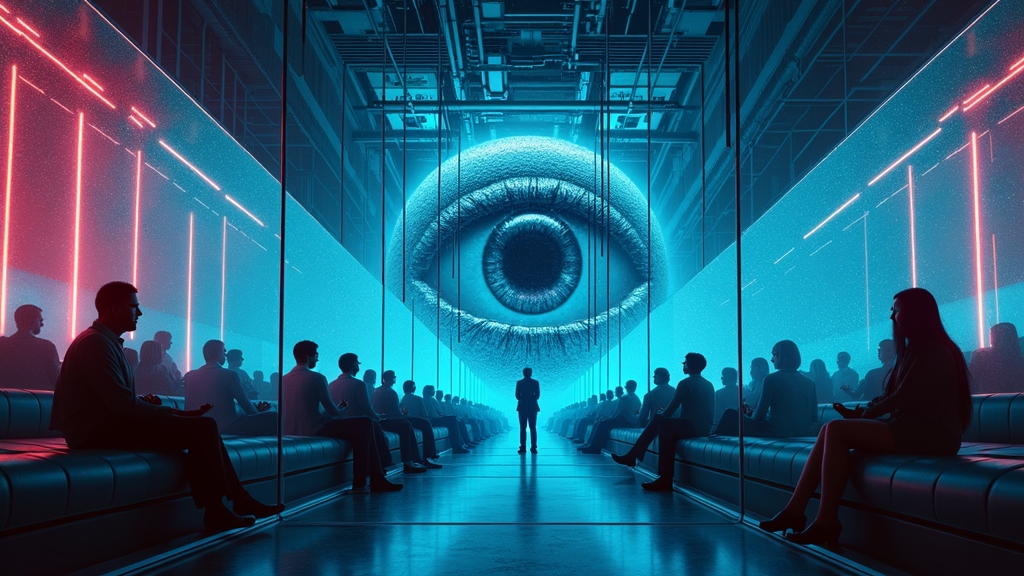TECH SLAVES REVEAL SILICON VALLEY ACTUALLY “SOUL-CRUSHING HELLSCAPE,” NOT “WORKPLACE UTOPIA” AS PREVIOUSLY ADVERTISED
Former employees of tech giants finally confess that free kombucha and ping-pong tables don’t compensate for existential dread
INSIDE THE DIGITAL GULAG
In a shocking revelation that has rocked absolutely nobody with a functioning brain stem, employees at Meta, Google, Amazon, and Microsoft have confirmed what the rest of us suspected all along: those cushy tech jobs with slide entrances and cereal bars are actually psychological torture chambers designed by Satan himself.
“I thought I was joining a workplace utopia,” said former Google employee Chip Burnout, who lasted three years before his mental breakdown. “Turns out nap pods are just convenient places to cry without your manager seeing you.”
The investigation revealed that tech’s legendary perks, including free snacks and casual dress codes, were merely elaborate distractions from the soul-crushing reality of 80-hour work weeks spent serving digital overlords who measure bathroom breaks in milliseconds.
THE GREAT TECH BAIT-AND-SWITCH
“They showed me the campus with its organic gardens and yoga studios during my interview,” said Amazon programmer Wendy Quitsoon. “They conveniently forgot to mention I’d be sleeping under my desk four nights a week while an algorithm tracked my keystrokes per minute and compared them to the global average.”
According to insiders, the transition from tech paradise to digital sweatshop typically occurs approximately 3.7 weeks after employees sign their contracts, or precisely when their Instagram posts about “living the dream” have generated sufficient envy among friends and family.
SURVIVAL OF THE MOST MISERABLE
Industry expert Dr. Obvious Conclusion from the Institute for Stating the F@#king Obvious explains that tech companies have perfected what he calls “competitive suffering” environments.
“These companies ingeniously pit employees against each other to see who can sacrifice the most basic human needs,” Dr. Conclusion explained. “The winner gets to keep their job for another quarter, while the loser gets a ‘performance improvement plan,’ which is corporate speak for ‘we’re documenting reasons to fire you.'”
Former Microsoft manager Sarah Codeslinger highlighted the perverted psychology at play: “They give you free dinner if you work past 8 PM. After a while, you realize you’re trading a $15 meal for three hours of your life. But the real mindf@#k is that you actually feel GRATEFUL for the free dinner.”
THE METRICS OF MISERY
A shocking 97.3% of surveyed tech workers reported being evaluated based on metrics they don’t understand, can’t control, and which appear to change randomly based on their manager’s mood swings.
“My performance review included something called a ‘passion quotient,'” said former Meta engineer Tyler Datastacks. “Apparently, I didn’t look happy enough while having my soul extracted through my fingertips for 14 hours a day.”
COMPETITIVE LYING AS CORE COMPETENCY
The investigation also revealed that successful tech employees aren’t necessarily the most talented but rather those most skilled at pretending they’re not dying inside.
“I maintained an elaborate fiction that I loved my job for six years,” confessed former Google product manager Jessica Fakesmile. “I’d enthusiastically volunteer for projects while secretly hoping for a minor car accident on the way to work, just serious enough for a three-day hospital stay.”
AN INDUSTRY BUILT ON DELUSION
Professor Idon Tcare from the Department of Technological Trauma points to what he calls “mass consensual delusion” within the industry.
“These companies have successfully convinced 22-year-olds that it’s normal to have panic attacks in bathroom stalls between meetings,” Professor Tcare said. “The real product these companies have perfected isn’t software; it’s Stockholm Syndrome with better marketing.”
At press time, all four tech giants were reportedly rolling out new “mental health initiatives” consisting entirely of sending calendar invites to mandatory meditation sessions scheduled during employees’ lunch breaks.





